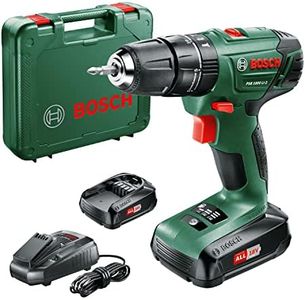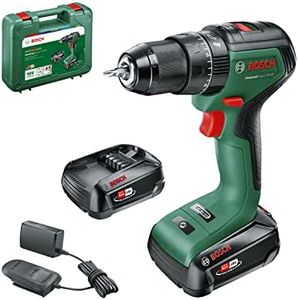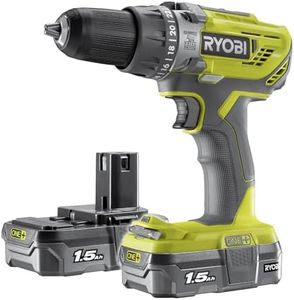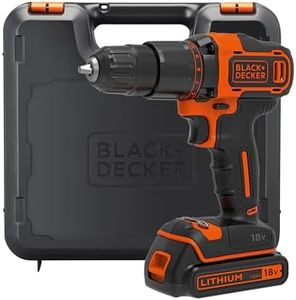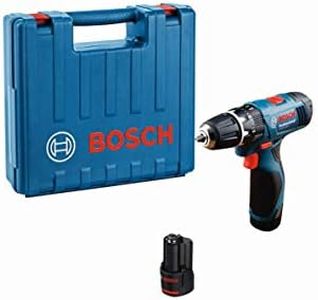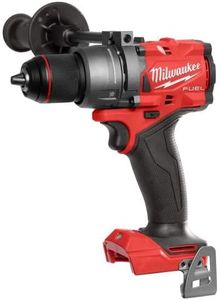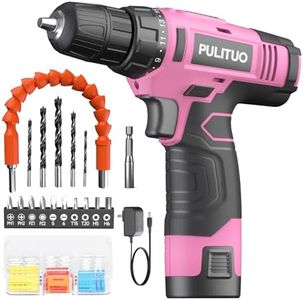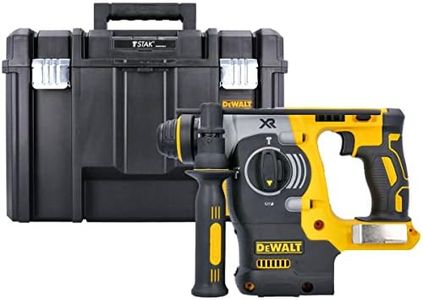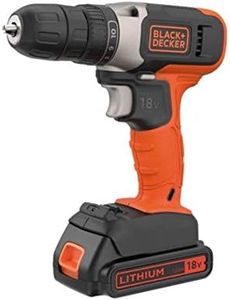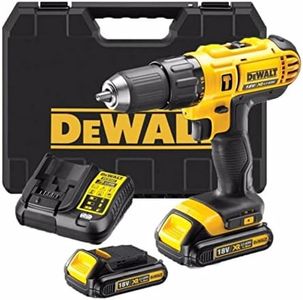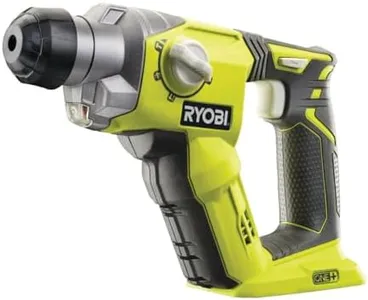We Use CookiesWe use cookies to enhance the security, performance,
functionality and for analytical and promotional activities. By continuing to browse this site you
are agreeing to our privacy policy
10 Best Lightweight Cordless Drills
From leading brands and best sellers available on the web.Recommended lists
Buying Guide for the Best Lightweight Cordless Drills
When choosing a lightweight cordless drill, it's important to consider the specific tasks you plan to undertake. Lightweight drills are ideal for tasks that require less power and more maneuverability, such as assembling furniture or drilling into softer materials. They are also great for extended use without causing fatigue. Understanding the key specifications will help you select a drill that best fits your needs, ensuring efficiency and comfort during use.WeightWeight is a crucial factor in a lightweight cordless drill as it directly affects the ease of use and portability. A lighter drill is easier to handle, especially for prolonged periods, and is ideal for overhead tasks or when working in tight spaces. Typically, lightweight drills weigh between 2 to 4 pounds. If you need a drill for simple household tasks, opt for the lighter end of the spectrum. For slightly more demanding tasks, a drill closer to 4 pounds might offer a good balance between power and comfort.
Battery VoltageBattery voltage indicates the power of the drill. Lightweight cordless drills usually come with voltages ranging from 12V to 20V. A 12V drill is sufficient for light-duty tasks like assembling furniture or drilling into drywall. If you anticipate needing more power for tasks like drilling into wood or light metal, a 18V or 20V drill might be more appropriate. Consider the types of materials you will be working with to determine the right voltage for your needs.
Battery TypeThe type of battery affects the drill's performance and longevity. Most modern cordless drills use Lithium-Ion (Li-Ion) batteries, which are lighter, hold a charge longer, and have a longer lifespan compared to older Nickel-Cadmium (NiCd) batteries. Li-Ion batteries are generally the best choice for lightweight drills as they provide a good balance of power and weight. Ensure the battery type aligns with your usage frequency and charging preferences.
Chuck SizeThe chuck size determines the maximum diameter of the drill bit that can be used. Lightweight drills typically have a chuck size of 3/8 inch, which is suitable for most household tasks and light-duty projects. If you plan to use larger drill bits or need more versatility, consider a drill with a 1/2 inch chuck. Choose a chuck size based on the types of projects you expect to undertake.
Speed SettingsSpeed settings refer to the number of speed options available on the drill. Most lightweight drills offer two-speed settings: low speed for driving screws and high speed for drilling. Some models may offer variable speed control for more precision. If you need a drill for a variety of tasks, look for one with multiple speed settings to provide flexibility and control. Consider the complexity of your projects to determine the necessity of variable speed options.
TorqueTorque is the rotational force the drill can apply, which is important for driving screws and drilling into tougher materials. Lightweight drills typically have lower torque, which is sufficient for light-duty tasks. If you need to drill into harder materials or require more force, look for a drill with adjustable torque settings. Assess the materials you will be working with to decide on the appropriate torque level for your needs.
